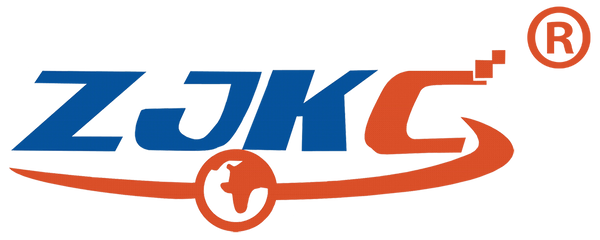Traumatic brain injury (TBI) is a major global health concern. It occurs when a sudden trauma causes damage to the brain, often leading to a wide range of physical, emotional, and cognitive issues. Traditional treatments for TBI focus on managing symptoms, but recent research has shown promising results from newer techniques such as photobiomodulation (PBM) and repetitive transcranial magnetic stimulation (rTMS). This article explores the findings from several key studies to provide a clearer understanding of how these therapies can benefit people recovering from TBI.
Photobiomodulation Therapy for TBI
One of the most notable studies on PBM for TBI is by Hamblin (2018), who reviewed both preclinical and clinical evidence showing the effectiveness of low-level light therapy on brain function after injury. In animal models, PBM led to improvements in brain metabolism, reduced inflammation, and enhanced neuroprotection. In humans, some clinical trials have shown that PBM can lead to better cognitive performance and reduced neurological damage. The therapy works by stimulating mitochondrial function and increasing ATP production, which is essential for cellular repair and energy. Importantly, it also boosts blood flow and reduces oxidative stress in the brain.
Repetitive Transcranial Magnetic Stimulation (rTMS)
Repetitive transcranial magnetic stimulation (rTMS) is another non-invasive technique that has gained attention for treating symptoms following TBI. Pink et al. (2021) conducted a scoping review of rTMS for TBI and found a growing body of evidence supporting its use for managing cognitive and mood-related symptoms. The therapy uses magnetic fields to stimulate specific areas of the brain, particularly those involved in depression and executive function. Although more research is needed, early studies show that rTMS can lead to measurable improvements in attention, memory, and mood.
Effects of rTMS on Depression and Cognition After TBI
A systematic review and meta-analysis by Tsai et al. (2021) further confirmed the benefits of rTMS for TBI-related depression and cognitive decline. The study analyzed multiple clinical trials and concluded that rTMS significantly reduced depressive symptoms and improved cognitive outcomes. The results were especially promising for patients with mild to moderate TBI. The authors noted that different rTMS protocols, such as frequency and intensity, can affect treatment results. Nevertheless, rTMS appears to be a valuable tool in post-TBI rehabilitation.
Evidence from Animal and Human Studies
Nardone et al. (2020) reviewed data from both animal and human studies. They found that rTMS has a neuroprotective effect that supports brain recovery. In animals, rTMS improved functional outcomes and promoted neural repair. In humans, clinical improvements were observed in cognitive function and overall brain performance. Importantly, these studies also suggest that rTMS can modify neural plasticity, helping the brain to reorganize and adapt after injury.
rTMS for Specific Symptoms After TBI
Several studies have looked at the use of rTMS to treat specific symptoms of TBI. For example, Paxman et al. (2018) reported a case where rTMS successfully reduced chronic dizziness following mild TBI. The patient experienced a notable improvement in balance and quality of life. Another study by Meek et al. (2021) tested an accelerated rTMS protocol for people with persistent post-concussion symptoms. The results were encouraging: most participants showed reduced symptoms, including headaches, irritability, and concentration problems, after treatment.
Conclusion
TBI can have long-lasting and complex effects on a person’s life, but new therapies like photobiomodulation and repetitive transcranial magnetic stimulation offer hope for recovery. Based on solid research, PBM can support brain healing at the cellular level, while rTMS can stimulate specific brain regions to improve mood, cognition, and other symptoms. Although more research is needed, especially on long-term outcomes and optimal treatment protocols, these therapies are promising additions to the TBI treatment landscape.
References:
Hamblin MR. Photobiomodulation for traumatic brain injury and stroke. J Neurosci Res. 2018 Apr;96(4):731-743. doi: 10.1002/jnr.24190. PMID: 29131369; PMCID: PMC5803455.
Pink AE, Williams C, Alderman N, Stoffels M. The use of repetitive transcranial magnetic stimulation (rTMS) following traumatic brain injury (TBI): A scoping review. Neuropsychol Rehabil. 2021 Apr;31(3):479-505. doi: 10.1080/09602011.2019.1706585. PMID: 31880207.
Tsai PY, Chen YC, Wang JY, Chung KH, Lai CH. Effect of repetitive transcranial magnetic stimulation on depression and cognition in individuals with traumatic brain injury: a systematic review and meta-analysis. Sci Rep. 2021 Aug 20;11(1):16940. doi: 10.1038/s41598-021-95838-2. PMID: 34417481; PMCID: PMC8379199.
Nardone R, Sebastianelli L, Versace V, Brigo F, Golaszewski S, Manganotti P, Saltuari L, Trinka E. Repetitive transcranial magnetic stimulation in traumatic brain injury: Evidence from animal and human studies. Brain Res Bull. 2020 Jun;159:44-52. doi: 10.1016/j.brainresbull.2020.03.016. PMID: 32251693.
Paxman E, Stilling J, Mercier L, Debert CT. Repetitive transcranial magnetic stimulation (rTMS) as a treatment for chronic dizziness following mild traumatic brain injury. BMJ Case Rep. 2018 Nov 5;2018:bcr2018226698. doi: 10.1136/bcr-2018-226698. PMID: 30396889; PMCID: PMC6229180.
Meek BP, Hill S, Modirrousta M. Accelerated repetitive transcranial magnetic stimulation in the treatment of post-concussion symptoms due to mild traumatic brain injury: a pilot study. Brain Inj. 2021 Jan 5;35(1):48-58. doi: 10.1080/02699052.2020.1857837. PMID: 33297788.





